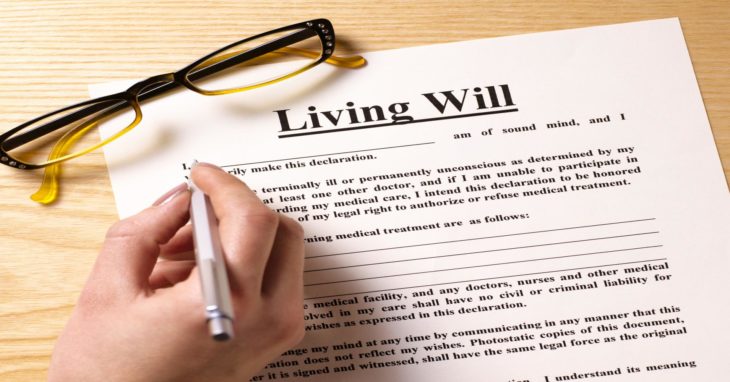What is a Living Will and what is its purpose?
A living will, or an Advance Healthcare Directive is a legal document that informs your family and your doctor about what kind of medical care you want to receive in case you’re unable to speak for yourself. If you don’t have a living will, your doctor and loved ones would be the ones making the decisions for you.
A living will make you, and the people close to you, more peaceful knowing that you have clearly stated what kind of medical care you want to receive. In the living will, wishes regarding resuscitation, life support, and guidelines concerning medications, are included.
In your living will, you can name someone to serve as your agent which gives them the right to, after consulting the information from the documents, make certain decisions regarding your medical care.

Img source: gfraserlaw.ca
By making this, you prevent anyone from making the decisions about your medical treatment in your name that you haven’t agreed to. Not having this document can present a problem for your family members and partner as they can disagree about what the right decision is. The main decisions they are required to make are the ones concerning starting and ending life support systems.
What is included?
You can put all of your wishes concerning medical and nursing treatments in your Living Will. According to Patientenverfuegung Digital main questions you’re supposed to cover in your Living Will include:
- The location where you wish to die
- Do you wish for the doctors to keep you alive under any circumstances
- You’re views on organ donation
- How important to you is independence in everyday life
Living Will can be made by any adult who is able to consent. That means that the person who the will is being made for needs to consciously authorize the document.
As accidents and illness can happen to anyone unexpectedly, it is understandable that anyone can benefit from having a Living Will – the young, the old, the ill, and the healthy.

Img source:
caseslegal.com
How to make a Living Will?
After you’ve answered the questions we listed above, you can start by speaking to people closest to you about your wishes. Consult them and explain your decisions. There is an Advance Decision form that you need to fill in, sign, and date in the presence of the witness who is also required to sign the form. The copy of the form should be handed to the people who are closest to you, your GP, and anyone who is involved in your medical care.
In case you want to refuse life-sustaining treatment, you must include a sentence that clearly states that you refuse the treatment even when your life is at risk.
Living Wills are legally binding, meaning that in case a professional ignore it, they can be taken to court. However, it is up to you to make sure that anyone who needs to have access to your Living Will knows about it.
